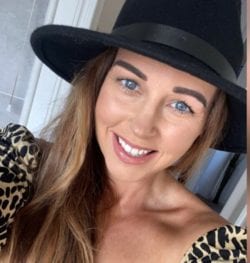When a person is diagnosed with Type 1 diabetes, one of the fears they may have is that they will not be able to do the things they did before, especially if they are involved with sports. However, World Champion kickboxer, Catherine has proven that diabetes does not have to hold you back.
Catherine won five World Championships, four of which she won after being diagnosed with Type 1 diabetes at the age of 20.
“I was diagnosed just after my 20th birthday. I had been waking up a lot at night to go to the toilet and had an intense thirst. I was also tired constantly, had no appetite and had lost a lot of weight quickly,” she recalls.
One evening, she came home from college and was so tired, she lay down on the sofa and fell asleep. Her mother woke her up to ask her if she was going to training that evening.
“I was so tired, I said no. Kickboxing was my life, so I never missed training. My mam had noticed that I had been very lethargic, but when I said I wasn’t going training, she knew something was wrong. She suggested I go to my GP,” Catherine says.
Her GP gave her a blood test and a few days later, she got the results and was sent straight to the hospital.
She admits that during that first year, she knew very little about the condition and there wasn’t as much education about it as there is now.
“I knew I had no insulin, so I had to replace that by injecting it, but I didn’t know much else. I didn’t really know about carb counting and the insulin doses I took would have been advised by my consultant, so there wasn’t much flexibility,” she notes.
However, she never let the condition hold her back when it came to the sport that she loved. Catherine started kickboxing at the age of eight and was competing for Ireland by the age of 13. She won her first World Championship at the age of 18, going on to win four more in the years after her diagnosis.
“The summer after I won my first World Championship, I was beaten in the finals of it, and that December, I was diagnosed. Looking back, the signs were there. The girl I shared a room with at the finals I was beaten in said ‘why are you so tired all the time, you are sleeping constantly?’ But I didn’t know why,” she recalls.
At the end of that October, she went on a trip to Paris with her boyfriend, who is now her husband. She says she was exhausted throughout the journey and he couldn’t understand why she was so tired. They came home in early November and the following month, she was diagnosed.
Catherine believes that Type 1 diabetes is “very individual” and what works for one person may not work for another. Even people with good control can have off days due to things like hormones and stress.
“A lot of my routine is the same. I work from home, I train most days, I walk a lot, I eat similar foods, and I track carbs, proteins, and fat, but it still doesn’t mean that my blood glucose levels are going to be on the money.
“I train a lot so I would have very fluctuating levels in and around my training. For me, it is about seeing a pattern and seeing what works,” she points out.
Catherine admits that in the early years, she probably didn’t test her blood glucose levels as much as she should have.
“I was probably in denial about having diabetes, but I use a CGM now, so it is a lot easier for me to see what is happening and work out my patterns,” she explains.
Her overall diabetes control is aided by exercise – the more she moves, the better her control is.
She does three 20-minute walks a day, in the morning, afternoon and evening, and she lifts weights five or six days per week. While she doesn’t compete anymore, she still does kickboxing training, and she also works as an online fitness coach.


